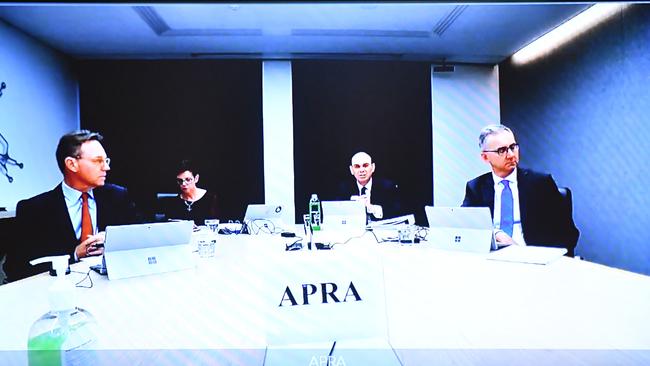APRA releases 2021 to-do list
Are banks prepared for financial risks, including climate risk in 2021?

The nation’s prudential regulator has put banks on notice it will review their preparations for defending from financial shocks, including climate risk, according to a roadmap of its key objectives for the coming year.
The COVID-19 pandemic is not set to slow down the Australian Prudential Regulatory Authority, which in its latest list of priorities has laid out plans to focus on financial risk resilience and completing key reforms.
APRA said over the next 12-18 months it would continue developing policy to strengthen preparedness from the financial sector in the face of crisis.
“The standard is intended to drive improvements in entity recovery planning, as well as
establishing new requirements to support APRA in resolution planning and to safeguard
critical functions,” APRA said.
In its blueprint the regulator said it has written to nations banks, insurers and super funds to ask about how they are preparing to manage climate-related financial risks.
It also signalled it would release and finalise guidance on how to improve governance, strategy, risk management, scenario analysis and disclosure across the climate-related risks sector before the end of 2021.
The regulator had suspended much of its planned policy and supervision agenda in March last year after the COVID-19 pandemic crashed into the Australian economy.
But APRA is now set to press ahead with implementing key recommendations of the Royal Commission into financial misconduct, including new standards on remuneration.
This includes development of new prudential requirements for all industries for recovery, resolution and enhanced requirements for operational resilience.
APRA also plans to complete revisions to bank capital requirements and overhaul some accounting rules covering insurers.
The regulator released its draft standards which oversees how much capital banks must hold on their balance sheets.
The regulator has also signalled its intent to revise its approach to issuing new banking licences. The comments comes just days after the neo-bank sector lost its second entrant with 86 400 agreeing to be acquired by big four bank National Australia Bank. Last December Xinja handed back its banking license after being crushed by ultra-low interest rates.
APRA said it would publish new authorisation guidelines for banks, including foreign banks and non-operating holding companies.
The regulator has also reminded superannuation funds of its intent to continue the super reforms to boost member outcomes and investment governance across the sector.
APRA has said it would conduct a number of thematic supervisory activities in the next 12-18 months on the superannuation sector, including a review into unlisted asset valuation.
It also warned “poorer performing entities” it would be closely watching to ensure they lifted their game.
APRA Chair Wayne Byres said it was important to continue strengthening the financial system to ensure it was prepared for the crisis of the future.
“Last year, the industry demonstrated an ability to adapt and continue serving the needs of customers, despite a number of severe operational challenges and disruptions,” he said.
“The robust response to date is not a cause for complacency, but underlines the value of an ongoing regulatory program that seeks to identify risks and put in place appropriate mitigation strategies to protect the interests of depositors, policy holders and fund members.
Mr Byres said APRA was looking at the shape of the financial system beyond the COVID-19 pandemic.
“Given the continued uncertainly generated by COVID-19, APRA’s proposed policy and supervision agenda for the coming period will remain responsive to the external environment to ensure it continues to prioritise the areas of greatest need,” he said.



